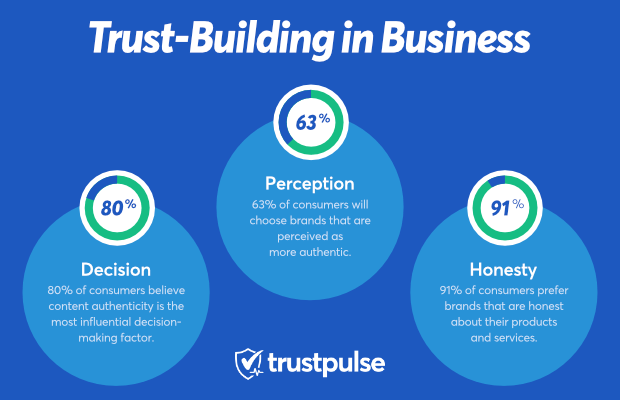I’ve always been intrigued by the concept of trust – that intangible foundation upon which so many relationships are built. Whether it’s a friendship, a romantic partnership, or a business transaction, trust is the glue that holds it all together. And when it comes to building trust online, particularly in the world of branding, it becomes an even more complex and delicate process.
In this digital age, where virtual interactions have become the norm, it’s more important than ever for brands to establish an authentic and trustworthy presence online. With the vast amount of information available at our fingertips and the ease with which we can access it, consumers have become more discerning and demanding. They no longer blindly follow flashy advertisements or catchy slogans; instead, they seek genuine connections with brands that align with their values and resonate with them on a deeper level.
So, how can brands foster trust in this increasingly digital landscape? The answer lies in authenticity.
Authenticity goes beyond simply being genuine or transparent; it’s about creating a consistent and relatable brand experience that truly represents your values, purpose, and identity. It’s about building meaningful connections with your audience and showing them that you understand and care about their needs and aspirations. In essence, it’s about being human in a world of algorithms and automation.
One of the most effective ways to establish authenticity is through storytelling. Sharing your brand’s journey, its triumphs and failures, allows consumers to connect with you on an emotional level. By being vulnerable and open, you demonstrate that you are not just another faceless corporation, but a group of real people with real stories.
Take the example of Patagonia, the renowned outdoor clothing company. They have harnessed the power of storytelling to build a fiercely loyal customer base. Through their “The Footprint Chronicles” campaign, they have shed light on their manufacturing processes, including the social and environmental implications. By being transparent about their supply chain, they have gained the trust of consumers who value sustainable and ethical practices. Patagonia’s authenticity has not only helped them establish themselves as a leader in their industry but has also fostered a community of like-minded individuals who feel connected to the brand’s values.
Another crucial aspect of authenticity is consistent communication. Brands must show integrity by standing by their values and delivering on their promises. In a world where consumer skepticism is at an all-time high, brands need to be consistent across various touchpoints, whether it’s their website, social media, or customer service. By providing a cohesive experience, brands instill confidence in their audience and assure them that they can be trusted.
In recent years, direct-to-consumer brands have gained tremendous popularity, disrupting traditional retail models. Companies like Warby Parker and Glossier have tapped into the power of authenticity and personalized experiences. By cutting out the middleman and establishing direct relationships with their customers, these brands have been able to create a sense of intimacy and trust.
But authenticity in branding goes beyond storytelling and communication; it also requires a deep understanding of your target audience. Brands must listen actively and engage with their customers to understand their desires, pain points, and aspirations. By conducting thorough market research and taking customer feedback seriously, brands can tailor their offerings and messaging to align with their audience’s needs and values. This not only strengthens the trust but also enhances the relevance and value of the brand in the eyes of its customers.
However, building trust online can be a double-edged sword. With the rise of influencer marketing and paid endorsements, consumers are becoming increasingly skeptical of brands that engage in disingenuous practices. This is why it’s crucial for brands to choose their partnerships wisely and ensure that the influencers they collaborate with align with their values and have an authentic connection to the brand. By promoting genuine relationships and avoiding deceptive tactics, brands can maintain their integrity and build trust with their audience.
Ultimately, authenticity in branding is an ongoing process that requires constant evaluation and adaptation. It’s not a one-time box to be ticked; it’s a journey that involves actively listening to your audience, staying true to your values, and demonstrating genuine care and empathy. By prioritizing authenticity, brands can forge long-lasting and meaningful relationships with their customers, standing out in a crowded digital landscape and creating a loyal following based on trust.
